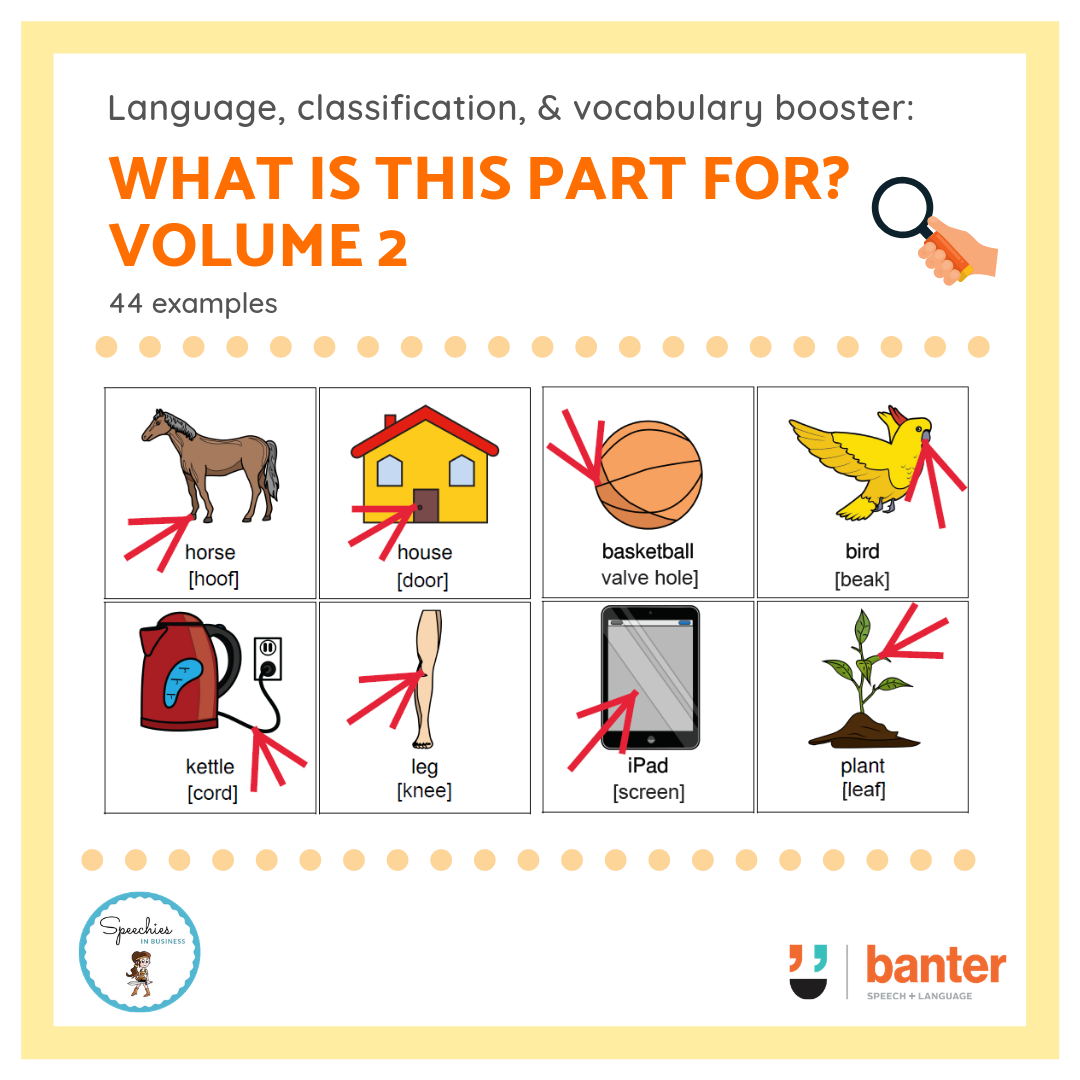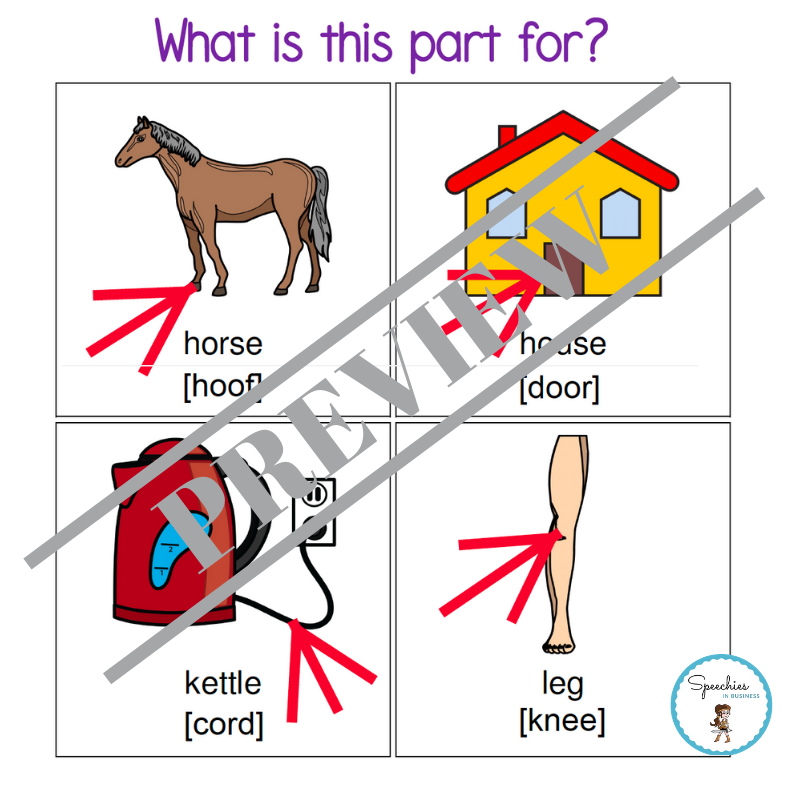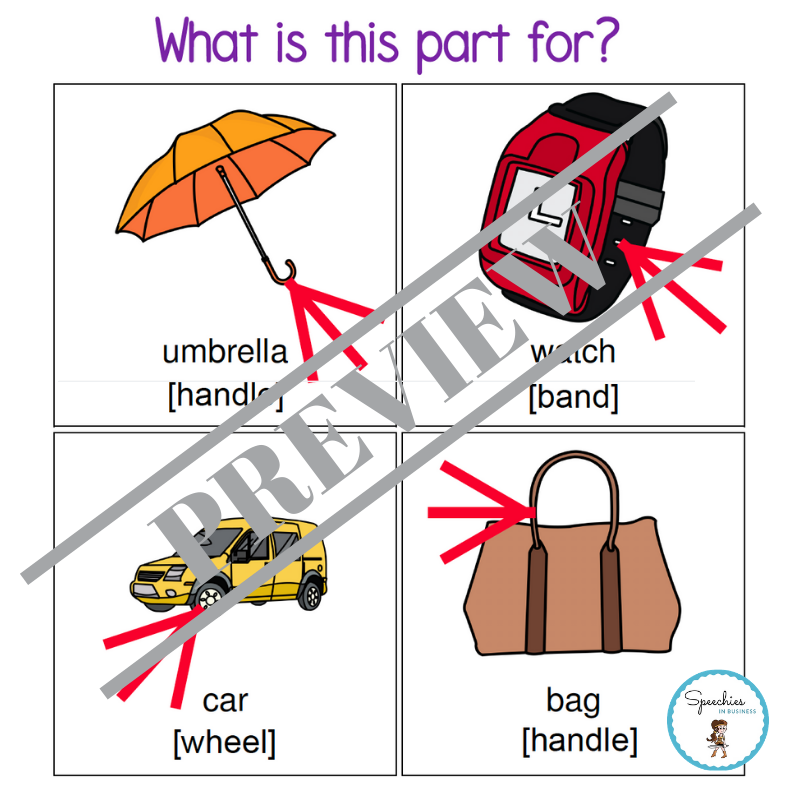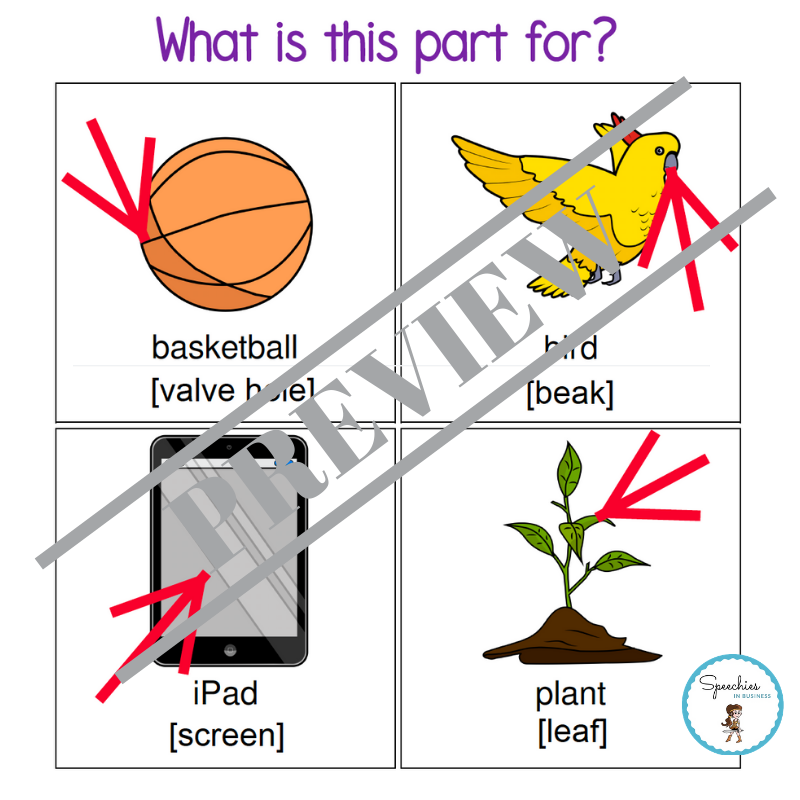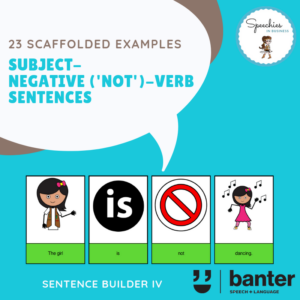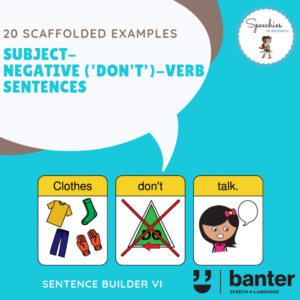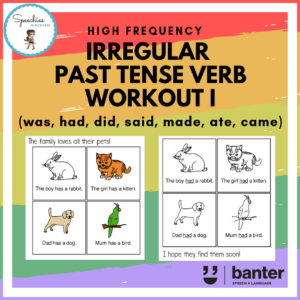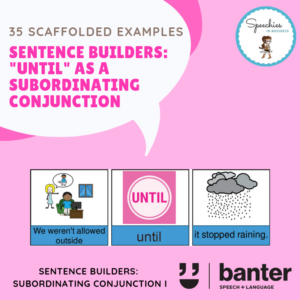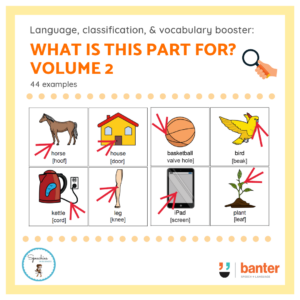(L203) Blanks 2: What is this part for? Volume 2
$5.99 including GST
In this 18-page no prep pack, we target a Blank’s Level 2 comprehension task. Specifically, we ask students to think about the parts of people, animals and common objects and to explain what they do. This stimulates children to increase their understanding about the function of common objects and things. It can also help children to classify things and to build their semantic knowledge.
Description
Some researchers think that up to 15% of young school kids don’t have the language comprehension skills to cope fully with the demands of school (Hart & Fielding-Barnsley, 2009). Many of these kids struggle – some for their whole lives. For most kids, school and home life plays a big role in helping to understand and use language (Morgan & Goldstein, 2004; Nation, 2005). So what can we do to improve students’ understanding of language?
Well, it helps to have a plan. And good plans are based on tried and tested frameworks. For language comprehension, one of the most influential frameworks was developed by Dr Marion Blank, a developmental psychologist. Dr Blank proposed four levels of abstraction, from least to most abstract:
Level 1: Directly supplied information (Matching perception)
Level 2: Classification
Level 3: Reorganisation
Level 4: Abstraction and Inferences
Many kids start school with an ability to complete Level 1 and 2 tasks. But some don’t; and many students with limited language skills really struggle with locations – sorting objects by where you would find them, which can hamper oral language development and reading comprehension skills.
In this 18-page no prep pack, we target a Blank’s Level 2 comprehension task. Specifically, we ask students to think about the parts of people, animals and common objects and to explain what they do. This stimulates children to increase their understanding about the function of common objects and things. It can also help children to classify things and to build their semantic knowledge.
To control for different student backgrounds, we have chosen our targets from a Basic English core vocabulary list of 200 easily picturable words supplemented with some more “modern” objects found in many homes. This exercise can be completed in any language. To make the exercise more challenging, ask the student to name the part.
For more Blank’s Level 2 comprehension tasks about parts, see ‘What is this part for?’ Volume 1.

